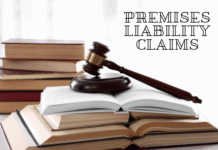Last Updated on February 11, 2026 by maryamnawaz
Table of Contents
Introduction
Birds are among the most admired and cherished animals on the planet. From the colourful plumage of tropical parrots to the awe-inspiring migratory paths of geese, these creatures captivate people across cultures.
However, with this admiration comes responsibility—legal responsibility. “Bird law” refers to a broad set of legal regulations and principles that govern the protection, ownership, and treatment of birds.
This article explores the complexities of bird law, highlighting the legal rights and responsibilities that pet owners, wildlife lovers, and conservationists need to understand.
| Aspect | Details |
| Definition of Bird Law | Legal protections and regulations related to the ownership, treatment, and conservation of birds. |
| Key Legislation | Migratory Bird Treaty Act (MBTA), Endangered Species Act (ESA), and local wildlife protection laws. |
| Who It Affects | Pet bird owners, wildlife rehabilitators, watchers, conservationists, and hunters. |
| Permits Required | Necessary for owning exotic or protected birds, breeding, relocating, or wildlife rehab. |
| Illegal Actions | Possession of protected birds without permits, poaching, trafficking, or nest destruction. |
| Common Pet Bird Rules | Vary by state; often include regulations on import/export, breeding, and vet care standards. |
| Wild Bird Interaction | Limited by law—cannot trap, sell, or keep migratory birds without federal permits. |
| Conservation Implications | Bird law supports biodiversity, protects endangered species, and regulates habitat conservation. |
| Enforcement Agencies | U.S. Fish and Wildlife Service, state wildlife agencies, and local animal control departments. |
| Consequences for Violations | Fines, imprisonment, loss of pet ownership rights, or revocation of wildlife permits. |
What is Bird Law?
Bird law encompasses a mix of international treaties, federal statutes, state laws, and local ordinances that aim to protect birds in both their natural habitats and domestic environments. It regulates:
- Ownership of pet birds
- Protection of wild and migratory birds
- Conservation efforts for endangered species
- Ethical treatment and welfare of captive birds
- Licensing and permits for breeding, selling, or handling birds
Key Laws That Govern Bird Protection
1. The Migratory Bird Treaty Act (MBTA)
Established in 1918, the MBTA is a cornerstone of bird protection in the United States. It makes it illegal to pursue, hunt, take, capture, kill, or sell any bird listed as a migratory bird without a proper permit. Over 1,000 bird species, including familiar ones like robins, owls, and eagles, are covered.

2. The Endangered Species Act (ESA)
This federal law provides strict protection for birds listed as endangered or threatened. It prohibits activities that harm or kill protected birds or damage their critical habitats.
3. The Bald and Golden Eagle Protection Act
Specifically designed to protect America’s iconic eagles, this law prohibits the taking or possession of eagles, their nests, or their eggs without a special permit.

4. State and Local Regulations
States may impose additional protections, including rules for pet ownership, hunting seasons, and habitat conservation. Local ordinances may govern noise, sanitation, and zoning laws related to birdkeeping.

Bird Ownership Laws
Owning a pet bird comes with legal obligations. While many species, such as parakeets and canaries, are legal to own, others may require a special license.
Licensing and Permits
- Some birds, such as African grey parrots and macaws, may need a permit due to their protected status or import restrictions.
- Breeders must comply with licensing laws from agencies like the USDA.
Health and Welfare
Pet owners must provide suitable housing, proper nutrition, and medical care. Neglect or abuse can result in fines or criminal charges.
Legal Considerations for Bird Breeders and Sellers
Breeders and pet store owners must adhere to commercial licensing laws. These include:
- Compliance with the Animal Welfare Act
- Health certifications
- Records of sale and origin
- Adherence to import/export laws for exotic birds

Bird Law in Wildlife Conservation
Conservationists must navigate bird law when engaging in rescue, rehabilitation, or research activities.
Protected Species and Habitats
- Conservation groups must obtain permits before interacting with protected species.
- It is illegal to disturb nesting birds in designated conservation areas.
Rescue and Rehabilitation
Only licensed wildlife rehabilitators may care for injured or orphaned wild birds. Even well-meaning civilians can face legal trouble for trying to rescue wild birds without authorisation.
Research and Banding
Scientific research involving birds often requires permits from both federal and state agencies. This includes activities such as tagging or collecting biological samples.
Emerging Trends in Bird Law and Conservation
As environmental challenges intensify, bird law is evolving to address new threats to avian populations. Climate change, habitat fragmentation, and urban expansion are prompting updates in legislation and enforcement practices. For instance, some states are now incorporating requirements for bird-safe building designs, such as glass treatments and green rooftops, to prevent collisions.
Additionally, technology is increasingly used to monitor migratory patterns and enforce protections, including GPS tracking of endangered species and automated reporting of illegal activities like poaching or nest destruction.
International Bird Law and Treaties
Bird conservation is a global issue. Several international treaties regulate bird protection:
- Convention on International Trade in Endangered Species (CITES): Governs the trade of exotic and endangered birds across borders.
- Ramsar Convention: Protects wetlands that serve as crucial habitats for birds.
- Bonn Convention: Focuses on the conservation of migratory species.
Bird Law and Urban Environments
Urbanisation poses unique challenges for bird protection. Laws address concerns like:
- Building designs that reduce bird collisions
- Regulations against feeding pigeons or other wild birds in certain cities
- Rules against keeping noisy birds in residential zones
Ethical Issues in Bird Law
Besides legal compliance, ethical considerations are vital:
- Is it ethical to keep wild-caught birds as pets?
- Should bird shows and circuses be banned?
- How do we balance conservation with human development?
These questions often shape future legislation and policy decisions.
Common Legal Mistakes and How to Avoid Them
| Mistake | Consequence | How to Avoid |
| Owning a protected species without a permit | Fines or jail time | Always verify the legal status of a bird before purchase |
| Disturbing a bird nest during breeding season | Legal penalties | Avoid clearing brush or trees during nesting season |
| Importing exotic birds illegally | Seizure and prosecution | Use only licensed importers and check CITES listings |

Legal Resources for Bird Enthusiasts
- U.S. Fish and Wildlife Service: Provides information on federal laws and permits.
- American Bird Conservancy: Offers resources on bird-friendly practices.
- National Audubon Society: Advocates for bird-friendly policies and public education.
- Local wildlife agencies handle state-specific regulations and licensing.
Conclusion
Understanding bird law is crucial for anyone who interacts with birds, whether as a pet owner, conservationist, or wildlife enthusiast… These laws protect not only birds but also ecosystems and human interests.
By staying informed and compliant, individuals can help preserve and ethically treat avian life. The next time you see a bird perched on a tree or hear one sing, remember that laws safeguard its right to exist and thrive.
Whether you want to own a parrot, rescue a hawk, or protect wetlands, bird law is your guide to doing so legally and ethically.
Apart from that if you want to know about “Contacting Foyle Legal Made Easy” then please visit our “Law” Category.
FAQs
Depending on the offence and species involved, violators may face penalties such as substantial fines, jail time, or loss of pet ownership privileges.
No. Under the Migratory Bird Treaty Act (MBTA), possessing, selling, or transporting most migratory birds, their nests, or eggs without a federal permit is illegal.
Only licensed wildlife rehabilitators are allowed to care for injured wild birds. It’s illegal for the general public to keep them without proper certification.
It depends on the species. Common pet birds, such as parakeets and cockatiels, typically do not require permits, but exotic or protected species may require federal or state authorisation.



























